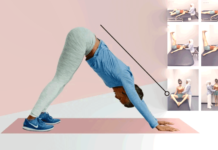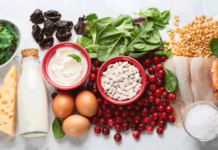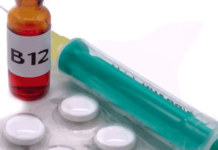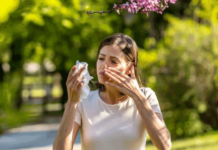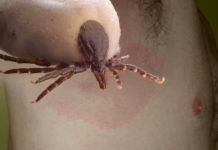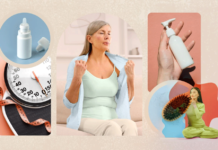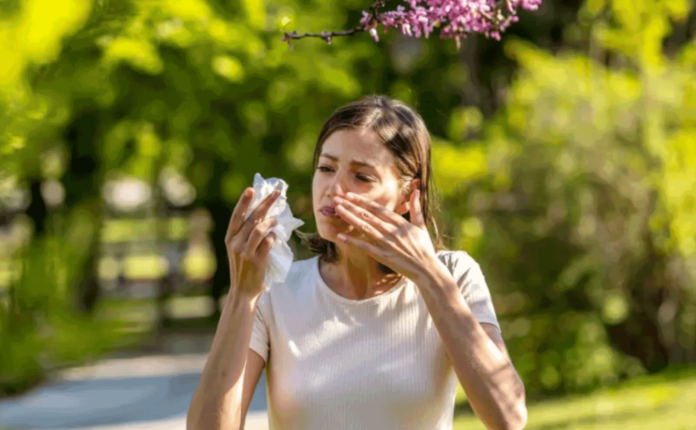Millions of people get ready for the known agony of seasonal allergies as the seasons change in 2025. Sneeze, itchy eyes, runny noses and congestion may turn lovely spring days or crisp autumn afternoons into a chore. Often caused by pollen, mould, or other environmental variables, seasonal allergies affect people differently; nonetheless, the search for relief is universal. From natural cures to medical treatments and basic home remedies, there are numerous ways to control symptoms, thus one is lucky. This guide will look at seasonal allergy alleviation in 2025, including symptoms, therapies, home remedies, and advice on calming problems including ocular allergies. This article provides useful, human-centered tips to help you breathe comfortably whether you are looking for natural ways or interested about the newest therapies.
Understanding Seasonal Allergy Symptoms
Also called hay fever or allergic rhinitis, seasonal allergies are caused by your immune system overreacting to airborne pollutants such tree, grass, or weed pollen. Experts forecast in 2025 that changes in climate would lengthen pollen seasons, hence worsening symptoms for many. Common seasonal allergy symptoms are sneezing, nasal congestion, runny nose, itchy throat, and watery or annoyed eyes. Allergies can also cause weariness, headaches, and perhaps asthma attacks in certain people. Your location, the season, and your individual sensitivities will determine how these symptoms differ. Spring, for instance, usually brings tree pollen; autumn sees more ragweed. Your symptoms help you identify triggers and customise your strategy, therefore the first step towards discovering efficient alleviation is to acknowledge them.
Symptoms can interfere with daily activities and make it difficult to sleep well, enjoy outdoor activities, or concentrate at work. Unlike a cold, which usually goes away in a week, allergy symptoms last as long as you are exposed to the allergen. Should you see ongoing sneezing or congestion in 2025, tracking when and where your symptoms intensify could be useful. Websites and apps such as the National Allergy Bureau can offer local pollen levels to help you spot trends. Knowing your symptoms helps you to select the appropriate therapies whether you prefer medicinal choices or natural ones.
Seasonal Allergy Relief: Exploring Treatment Options
There is no universal remedy for treating seasonal allergies in 2025. Treatments vary from long-term therapies like immunotherapy to prescription pharmaceuticals and over-the-counter (OTC) medications. Popular for reducing sneezing, itching, and runny noses are antihistamines like cetirizine or loratadine. These drugs prevent histamine, a substance your body produces during an allergic reaction, from acting. Highly efficient for congestion, nasal corticosteroids such as fluticasone lower inflammation. While protracted use could cause rebound congestion, decongestants can assist with stuffiness; however, they should be used cautiously.
Immunotherapy—such as allergy shots or sublingual tablets—can desensitise your immune system to particular allergens over time for those looking for longer lasting relief. Sublingual immunotherapy (SLIT), which is needle-free and may be done at home, is becoming more common in 2025. Usually beginning a few months before allergy season, SLIT consists of daily placement of allergen drops or tablets under your tongue. Although not a quick remedy, after years or months of regular use it can greatly lower symptoms. Especially if your symptoms are severe or OTC medications fall short, always check with a doctor to see whether immunotherapy is appropriate for you.
Treatment is mostly about lifestyle modifications outside of drugs. Minimising exposure can be achieved by avoiding allergens by keeping windows closed on high-pollen days, utilising air conditioning, and bathing after outdoor activities. In 2025, developments in HEPA filter-equipped air purifiers will make it simpler to maintain indoor air clean. Combining these techniques with medicinal therapies forms a whole strategy to properly control allergies.
Seasonal Allergy Relief Natural: Embracing Nature’s Solutions
Natural seasonal allergy relief is a developing trend in 2025 for people who like more mild methods. For minor symptoms, natural remedies can either stand alone or enhance medical therapy. Local honey is among the most well-known natural treatments. The theory is that eating honey produced by bees in your region exposes your immune system to little amounts of local pollen, thereby perhaps developing tolerance with time. Although scientific data is inconsistent, many individuals swear by a daily tablespoon of raw, local honey to relieve symptoms. For the greatest outcomes, begin a few weeks before allergy season and savour it in tea or on toast for a wonderful ritual.
A plant chemical present in foods including apples, onions, and berries, quercetin is another natural choice. Helping to stabilise histamine release, quercetin is a natural anti-inflammatory and antihistamine. Though there are supplements, including quercin-rich foods into your diet is a quick approach to boost your immune system. Often drunk as tea or taken as a supplement, stinging nettle also contains anti-inflammatory qualities that could help with congestion and sneezing. A 2017 research indicated that nettle can be useful for allergic rhinitis, hence it might be interesting for 2025.
Probiotics are also drawing more interest for their ability to balance the gut microbiome, which might affect immunological reactions. Over time, yoghurt, kefir, or fermented foods like sauerkraut could help lower allergy sensitivity. Although they are not a panacea and outcomes differ from one to individual, some natural treatments appear to be encouraging. Especially if you take drugs or have underlying health issues, always see a doctor before beginning supplements.
Seasonal Allergy Home Remedies: Practical Solutions for 2025
Home cures are affordable, easily available methods to acquire seasonal allergy relief at home. Often using a neti pot or saline spray, nasal irrigation is among the most efficient. This method clears irritants, mucus, and allergens from your nasal passages, hence reducing congestion and sneezing. Using a neti pot involves mixing a saline solution with distilled or boiling (and cooled) water, tilting your head, and pouring the solution into one nostril, allowing it to drain out the other. To prevent infections, clean the pot completely after every use. Though a basic neti pot stays a consistent option, motorised nasal irrigation devices are gaining popularity in 2025 for their simplicity.
Another calming treatment is steam inhalation. Steam from a hot shower or a bowl of warm water can help to release mucus and reduce sinus strain. Though research on oils is scant, using essential oils like eucalyptus or peppermint might improve the impact. Avoid burns by being careful with hot water and keeping sessions brief—5 to 10 minutes. Key is also remaining hydrated. Drinking lots of water helps thin mucus, hence facilitating the removal of allergens from your body. Try for eight to ten glasses a day, and think about chamomile herbal teas for extra comfort.
A proactive solution is to keep your house allergen-free. As they can transport pollen inside, avoid having pets lay on your bed, wash bedding weekly in hot water, and clean often using a HEPA-filtered vacuum. Smart home technologies in 2025 will track interior air quality and notify you of any allergy surges. Without depending just on drugs, these little adjustments can significantly help to lower discomfort.
Seasonal Allergy in Eyes: Soothing the Itch and Irritation
Often, allergies affect the eyes most, resulting in intolerable redness, stinging, and watering. Seasonal allergy in eyes, often called allergic conjunctivitis, happens when pollen or other allergens annoy the sensitive tissues surrounding your eyes. Eye discomfort could be more common in 2025 as pollen seasons could get worse. By suppressing histamine’s effects, OTC antihistamine eye drops—like those containing ketotifen—can offer rapid relief. Artificial tears help to keep your eyes moist and can also wash away irritants, hence lowering inflammation.
A chilly compress is suggested for natural alleviation. For 10 to 15 minutes, soak a clean cloth in cold water, rinse it out, and lay it over shut eyelids. Without drugs, this can calm itching and lower swelling. Rubbing your eyes can increase irritation and distribute allergies, so please refrain. Wearing sunglasses outside helps to block pollen; wraparound designs provide further protection. Keep windows closed and run an air purifier to reduce indoor allergens at home. See an allergist or eye specialist to rule out infections or other concerns should eye symptoms continue or worsen.
Combining Approaches for Maximum Relief in 2025
Often, the greatest relief from seasonal allergies results from a combination of therapies, cures, and lifestyle changes. You may, for instance, consume a diet high in anti-inflammatory foods to help your immune system, do nasal irrigation to remove allergens, and take an antihistamine for quick relief. In 2025, technology can improve your plan. Emerging wearable gadgets monitoring allergen exposure let you prevent triggers. Apps can alert you to do daily neti pot rinses or take drugs. Key is remaining proactive; usually a few weeks before your allergy season starts, begin treatments or remedies before symptoms peak.
Managing stress is also important since excessive stress can aggravate allergy symptoms. Yoga, meditation, or even a daily walk are examples of practices that help relax your body and mind and maybe lower symptom intensity. Natural treatments could take time to show effects, so be patient if you’re looking into them. Keep a journal to track your progress and identify what works best for you; feel free to see a doctor for tailored recommendations. Because allergies are quite personal, it could take some trial and error to discover your perfect treatment strategy.
Looking Ahead: Seasonal Allergy Relief in 2025
Seasonal allergies still provide difficulty as we go through 2025, but the remedy options are more varied than ever. From sophisticated medical therapies to time-honoured home remedies, you have choices to fit your requirements and tastes. The purpose is to recover your comfort and appreciate the seasons whether you are flushing your sinuses with a neti pot, using a cool compress to relieve irritated eyes, or investigating immunotherapy for long-term relief. Keep an eye on local pollen patterns, try natural remedies, and cooperate with medical experts to create a strategy that suits you. Seasonal allergies don’t have to stop you with the correct attitude.

